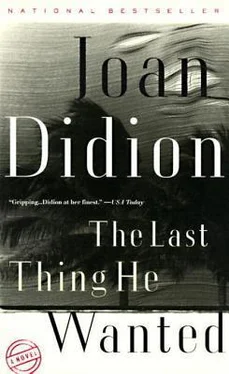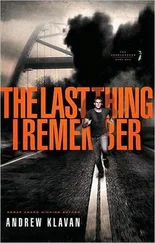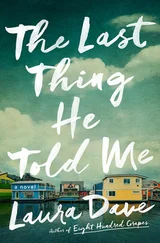Alexander Brokaw was of course not a political appointee.
Alex Brokaw was career, with a c.v. of sensitive postings.
Alex Brokaw had arrived on this island six months before to do a specific job.
A job that entailed bringing in the pros.
Because, as Alex Brokaw often said, if and when this switches gear into a full-scale effort, we’ll be rotating troops in and out, which is good for home-front morale but not good for construction continuity. So we damn well better bring the pros in up front.
The pros and of course the Special Forces guys.
A job that entailed establishing the presence on the island of this selected group of Americans, and discouraging the presence of all others.
Which is why Alex Brokaw mentioned to his DCM, after the incident at the embassy’s Fourth of July picnic, that it might be useful to run a background on Elise Meyer, which was the name on the passport Elena McMahon was by then using.
When I try to understand how Elena McMahon could have assimilated with no perceptible beat the logic of traveling on a passport not her own to a place she had no previous intention of going, could have accepted so readily that radical revision of who she was, could have walked into a life not her own and lived it, I consider the last time I actually saw her.
Academy Award night, 1982.
When she was still living in the house on the Pacific Coast Highway.
It was five months later when she walked out of that house and enrolled Catherine at an Episcopal boarding school in Rhode Island and got herself hired (on the basis not of her long-gone four-year career at the Herald Examiner but of an editorial hunch that Wynn Janklow’s scrupulously bilateral campaign contributions might still buy his estranged wife some access) at the Washington Post.
All that happened very fast.
All that happened so fast that the first I knew of it was when I got home from France in September of 1982 and began to go through the accumulated mail and was about to discard unopened, because it looked like one or another plea in support of or opposition to one or another issue, a plain white envelope with metered postage and a Washington D.C. return address. Had I not been distracted by a phone call I would never have opened the envelope, but I was, and I did, and there it was: a handwritten note, signed Elena, saying that of course I already knew that she and Catherine had relocated to the East Coast but now she was settled and just getting around to sending out her address. The printed name on the change-of-address card clipped to the note was Elena McMahon.
“Relocated” was the word she used.
As if leaving Wynn Janklow had been a corporate transfer.
I had not already known that she and Catherine had relocated to the East Coast.
I had known nothing.
All I knew was that on Academy Award night that year Elena McMahon had still been Elena Janklow, sitting in front of a plate of untouched cassoulet at the party that was in our rather insular community at that time the single event approaching a command performance, absently twining a Mylar ribbon torn from a balloon into the rhinestone strap of her dress. I never once saw her look at the big television screens mounted at every eye line, not even at those moments when a local favorite was up for an award and the party fell momentarily silent. Nor did she observe the other core tribal custom of the evening, which was to spring up and move toward the bar as soon as the awards ended, allowing the tables to be cleared while applauding both the triumphant arrivals of the winners and the inspirational sportsmanship of the losers.
Elena never got up at all.
Elena stayed seated, idly picking apart a table decoration to remove the miniature Oscar at its center, oblivious to winners and losers alike, oblivious even to the busboys changing the tablecloth in front of her. Only when I sat down across the table did she even look up.
“I promised Catherine,” she said about the miniature Oscar.
What she said next that Academy Award night was something I interpreted at the time to mean only that she was tired of the event’s structural festivity, that she had been dressed up in rhinestones in broad daylight since four in the afternoon and sitting at this table since five and now she wanted to go home.
I was wrong about what she said next.
As I would be wrong later to wonder how she could so readily assimilate the logic of walking into a life not her own and living it.
What she said next that Academy Award night was this: “I can’t fake this anymore.”
Suggesting that she had assimilated that logic a long time before.
“Somebody’s going to let you know the move they want you to make,” Barry Sedlow had said the last time he called her in San José.
“When,” she had said.
“By the way. I saw your dad. He says hi. I’m keeping him in the picture.”
Saying “hi” was not in her father’s vocabulary but she let this go. “I asked when.”
“Just stay put.”
In the six days since her arrival in San José she had left the room at the Colonial only twice, once to buy a toothbrush and a tin of aspirin, the second time to buy a T-shirt and cotton pants so that she could wash the black silk shift. She had given the maid American dollars to bring back sandwiches, coffee, once in a while a Big Mac from the McDonald’s across from the bus station.
“That’s what you told me the night I got here. I’ve been staying put. I need to know when.”
“Hard to say. Maybe tonight.” There had been a silence. “They may want you to take payment in another venue. Who knows.”
“Where.”
“They’ll let you know where.”
An hour later the envelope containing the passport and plane ticket had begun to appear, emerging at such barely perceptible speed that she was finally forced to breathe, under the locked door of her room at the Colonial.
She did not know why she had happened to look at the door at the very moment the envelope began to appear.
There had been no giveaway sound, no rustle of paper on carpet, no fumbling in the corridor.
The envelope had been clear of the door and lying motionless inside the room for a full five minutes before, still frozen, she moved to approach it. The ticket bearing the name Elise Meyer had been written by American Airlines in Miami on June 30 1984. The passport bearing the name Elise Meyer had been issued on June 30 1984 at the United States Passport Agency in Miami.
In the photograph affixed to this passport she was smiling.
In the photograph affixed to her own passport she was not.
She could not compare the two because her own passport was downstairs in the hotel safe, but she was quite certain that the photographs were otherwise similar.
She studied the photograph on the passport for some time before she sorted out how it could happen to be otherwise similar to the photograph on her own passport. It could happen to be otherwise similar to the photograph on her own passport because it had been taken at the same time, not long after she got to Washington, in a passport-photo place across from the paper. She had asked for extra Polaroids to use for visas. At some point recently on this campaign (whenever it was that the Secret Service had come on and started demanding photos for new credentials) she had stuck the five or six remaining prints in a pocket of her computer bag.
Why wouldn’t she have.
Of course she did.
Of course her computer bag was in a closet at the house in Sweetwater.
By the way. I saw your dad. He says hi. I’m keeping him in the picture.
Читать дальше












